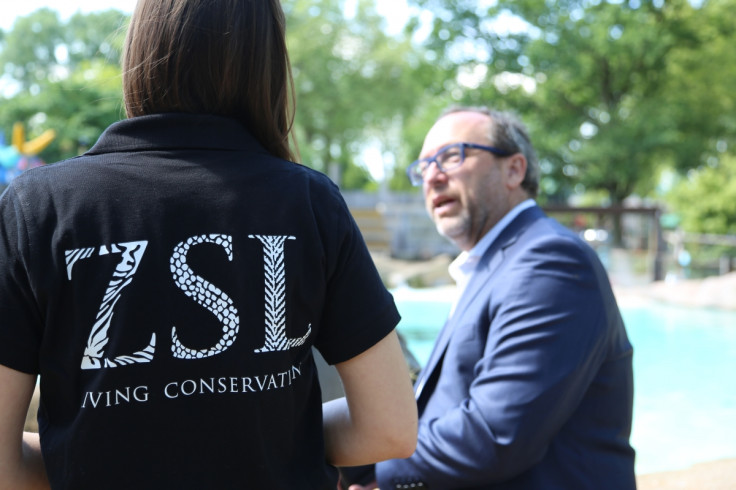EU-Google Ruling: Wikipedia's Jimmy Wales Ridicules 'Right to Be Forgotten'

The founder of Wikipedia has branded the EU Court of Justice ruling on the "right to be forgotten" as "ridiculous" and said it could have a big impact on Facebook as well as search engines.
Jimmy Wales was speaking to IBTimes UK in London, a day after the EU court ruled that in certain circumstances Google could be forced to remove links to content relating to individuals.
Google has publicly said it is "disappointed" with the decision but is thought to be privately furious.
Wales agrees with the search giant, and puts the blame on outdated laws, saying:
"I think the ruling is ridiculous, I think it has highlighted a real flaw in the European privacy law which is older than the internet in many ways.
"A very strict reading of the law leads to this very bizarre conclusion that a newspaper can publish information and yet Google can't link to it - it makes no sense at all."
Bizarre conclusion
Wales believes that because this legislation predates what we consider to be the internet, it has led to this "bizarre conclusion" and new laws applicable to the internet era need to be drawn up - though he is not optimistic the new rules will be any better.
"I think the [EU] are really going to have to bite the bullet [and] implement some new legislation. Of course I'm not very hopeful necessarily that legislation will be any smarter, but we can always hope."
The ruling is just a test case but could lead to a flood of requests for Google to stop linking to content, and in theory other search engines doing business in Europe, including Yahoo and Bing will be also affected - but as Wales points out, not all search engines will feel the impact.
"It's clearly going to have a major impact on all search engines doing business in Europe, but the interesting thing is that it will have no impact on the smaller search engines who aren't doing business in Europe, like DuckDuckGo for example."
Impact on Facebook
As people scramble to interpret the ruling, many companies who rely on the internet to make money will be eagerly assessing the wider impact it will have. One such company is Facebook.
"I think [the ruling] could very well impact Facebook because they do a lot of the same kind of algorithmic sifting through links of what people have posted to show you what they show you. It's the same kind of processing of data and therefore could be subject to the same kind of blockages."
Facebook says it needs look at the ruling in more detail before making a proper comment but added that it believes people should have the right to delete any content which they contributed to Facebook - with the social network now allowing users to completely delete their accounts.
"Good luck coming after us"
Wales believes the impact on Wikipedia, however, will be "minimal".
The online encyclopaedia doesn't do "a lot of automated sifting of data" says Wales, but more importantly, Wikipedia is "really hard to mess with" and any form of censorship would result in a public backlash:
"If you say that Wikipedia is not allowed to say some true fact, you've really got a clear free speech issue on your hands that would be deeply unpopular with the public. Google is sometimes not as sympathetic a character, they make a lot of money and people are a bit jaded about Google sometimes, but not Wikipedia."
Wales also claims that because Wikipedia's servers are based in the US and not Europe, this will afford it some protection.
However, hailing the ruling on Tuesday, the European Commission's Viviane Reding said that "companies can no longer hide behind their servers being based in California or anywhere else in the world."
When asked about this, Wales simply smiled and said: "Good luck coming after us."
Philosphical question
Following the ruling being made public on Tuesday, many rights groups slammed the decision as a violation of the right to freedom of expression.
Wales adds that "there is a significant, difficult and philosophical question [to be answered] around the balance between privacy and free speech, but I think what this decision highlights is that we've got [that balance] all wrong."
The number of people who will be looking to pursue Google and others to make changes to their search results will be "enormous" says Wales, and range from those with "legitimate concerns to people who are just trolling for a lawsuit."
Because the ruling is so unspecific, Wales said it is almost impossible to see how limits can be set.
"It's such a wide-open decision it is very hard to see how it can be contained, and over the next few months we will see happens."
© Copyright IBTimes 2025. All rights reserved.






















